Are you feeling uneasy about a recent rent increase notice from your landlord? It's completely natural to have concerns when faced with rising housing costs, especially in today's market. Understanding your rights and how to effectively communicate your objections can make all the difference. Let's dive into how to craft a clear and persuasive letter to address your landlord about the rent hike and explore your options further.
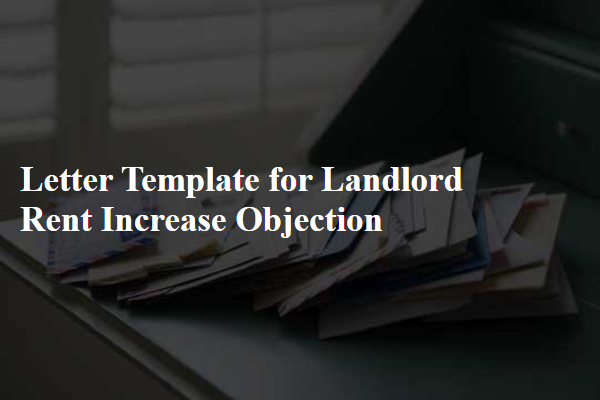
Tenant's financial situation
Tenants should consider the significant impact of rising rent on their financial situation, particularly in urban areas like New York City, where the average rent in 2023 has reached approximately $3,500 per month. With inflation rates hovering around 5% and the cost of living increasing, tenants are increasingly burdened. Many tenants rely on fixed incomes, making it difficult to absorb sudden rent increases. Essential expenses, including groceries (with prices rising 7% year-over-year), transportation, and healthcare, further strain budgets. Moreover, tenant protections under local tenancy laws highlight the necessity of fair adjustments, allowing for sustainability in housing without destabilizing communities. Understanding these factors can aid in a constructive dialogue regarding rent increases.
Comparable rental rates in area
Rent increases can significantly impact tenants, especially when comparable rental rates in the area suggest a more reasonable pricing strategy. For instance, in neighborhoods like downtown Seattle, average rent for a one-bedroom apartment stands at approximately $2,500, while the proposed increase could push the rent to $2,800. The current trend highlights properties on Maple Street offering similar amenities for around $2,400. Local real estate data shows that comparable units within a half-mile radius have not seen such increases, often remaining stable for over 12 months. This discrepancy raises serious concerns regarding fairness and market alignment. Furthermore, according to a recent housing report by the City of Seattle, median household income has only increased by 3% this year, contrasting sharply with the proposed hike in rent, making it vital to reassess and adjust the increase in light of local economic realities.
Property condition and maintenance history
Residents in properties often face challenges when landlords propose rent increases. Conditions within rental units, such as deteriorating infrastructure and inadequate maintenance, can significantly impact tenant comfort and satisfaction. For instance, a property in an urban area like Brooklyn, New York, may have issues like peeling paint and malfunctioning plumbing from years of neglect. Regular maintenance records, or the lack thereof, can highlight delayed repairs on essential amenities, such as heating systems during the winter months or air conditioning during summer heatwaves. Tenants may emphasize their timely rent payments while expressing concerns about the property's current state, arguing that an increase in rent should correspond with improvements in living conditions and overall maintenance responsiveness, particularly in light of historical repair requests that have gone unaddressed.
Lease agreement terms
Submitting a formal objection to a landlord regarding a rent increase requires attention to specific terms of the lease agreement. The lease, a legally binding document often spanning a period of one year, outlines provisions such as the base rent amount, renewal conditions, and any clauses addressing potential increases. It may also specify limitations on rent adjustments, often linked to indexes like the Consumer Price Index or local housing regulations. Addressing the landlord's communication, consider including aspects such as the notice period (frequently 30 days), any cited reasons for the increase (such as property improvements or market trends), and the tenant's rights under local housing laws, possibly referencing entities like the Department of Housing. Detailed, clear language can reinforce the objection and support legal compliance and fairness established in the lease agreement.
Length of tenancy and rental payment history
Tenants who have resided at a particular property for extended periods, such as five years or longer, often face significant concerns during rent increases. A stable rental payment history demonstrates reliability, with consistent monthly payments made on time, proving the tenant's commitment to fulfilling financial obligations. For instance, individuals living in cities like San Francisco or New York may face annual rent adjustments that can exceed 5% due to inflation or local market dynamics. Illustrating a history of prompt payments, along with the importance of tenant-landlord relationships built over time, can strengthen objections to sudden or excessive rent increases. Tenants might also reference rental laws or guidelines in the local jurisdiction, highlighting regulations that protect long-term residents from steep price hikes.

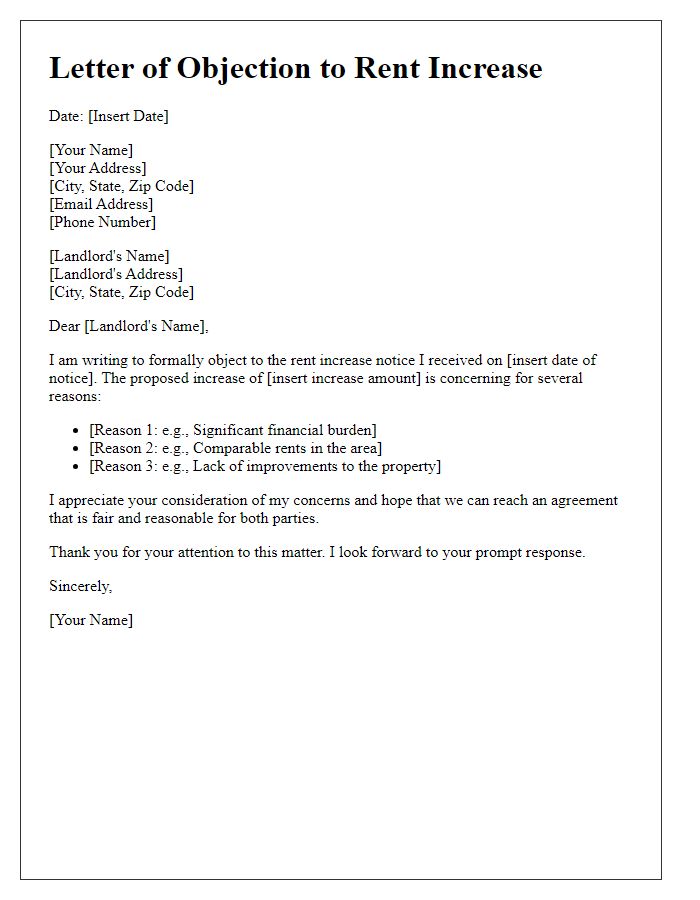
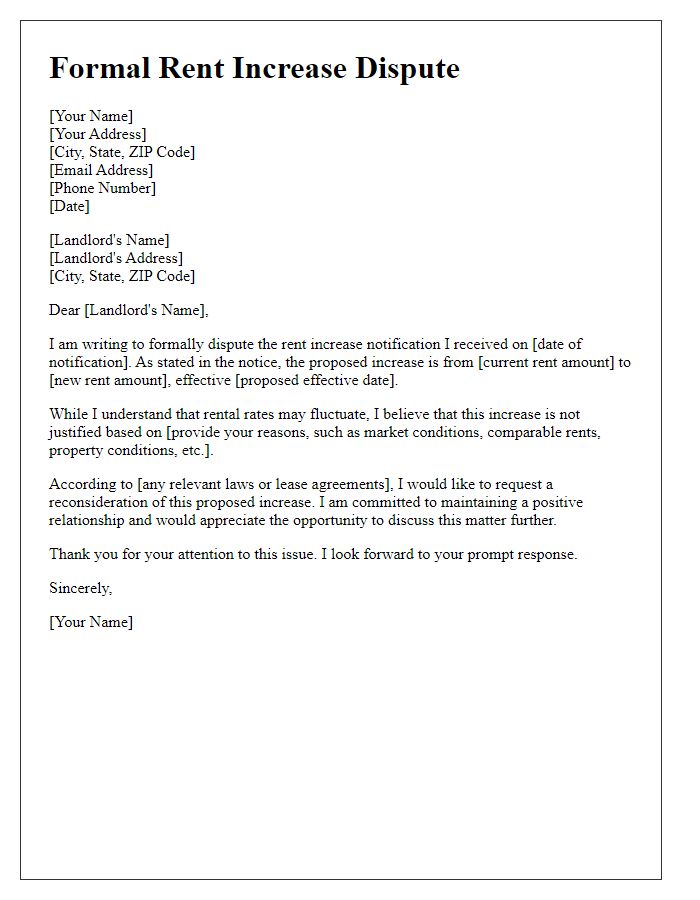
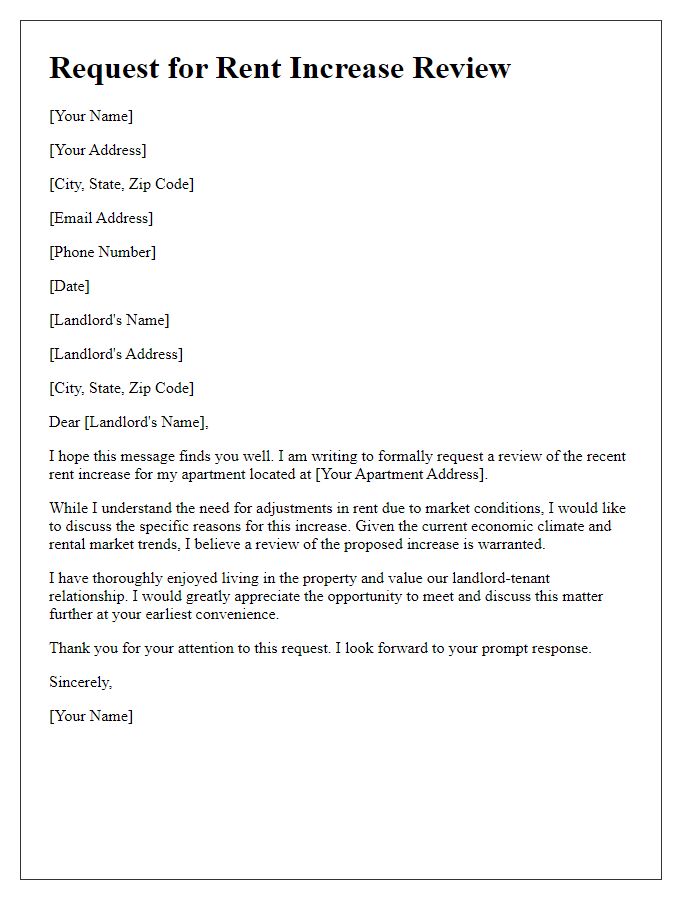
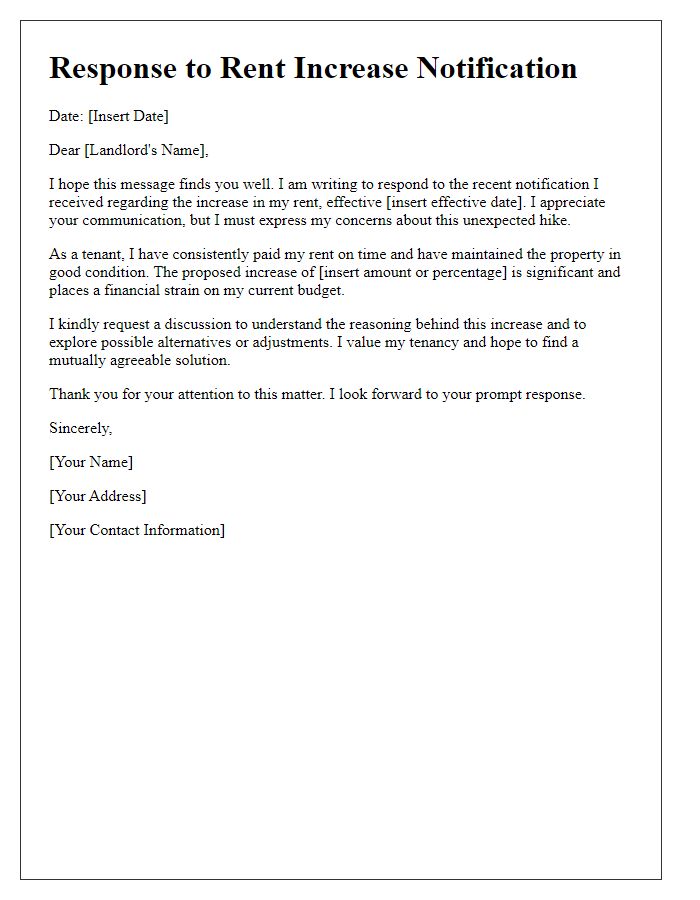
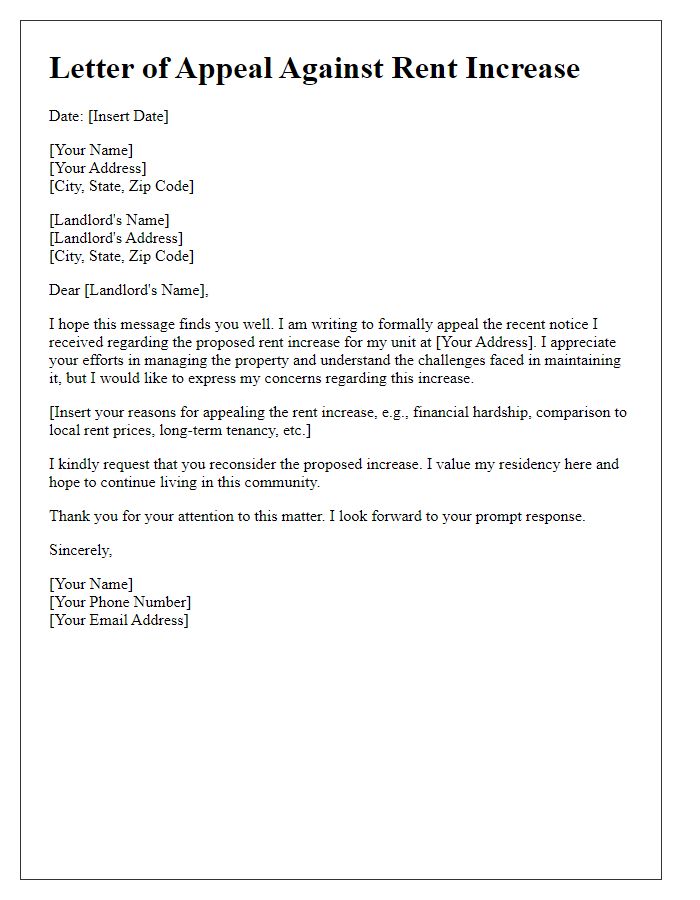
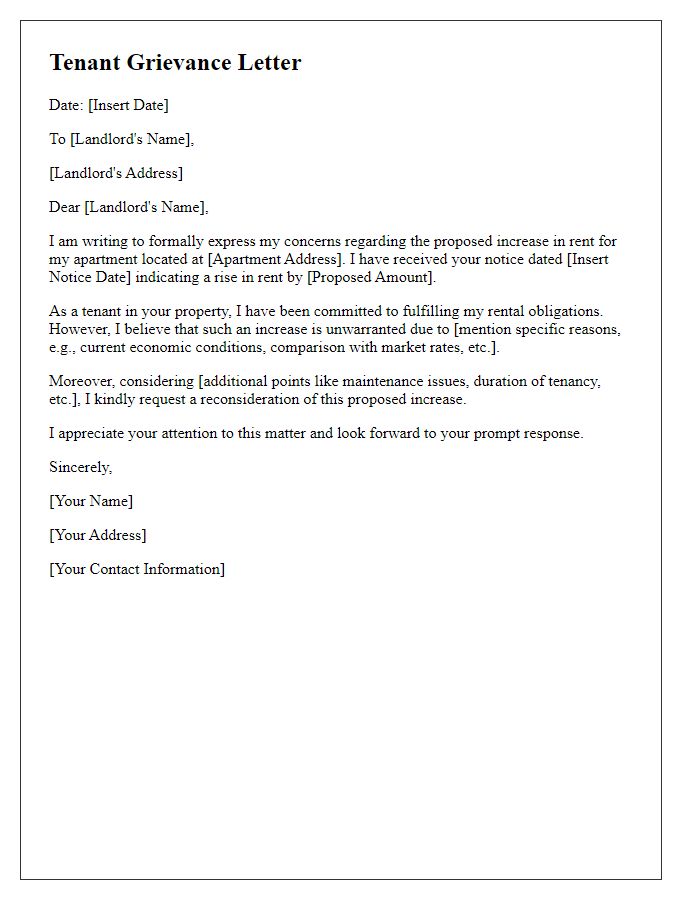
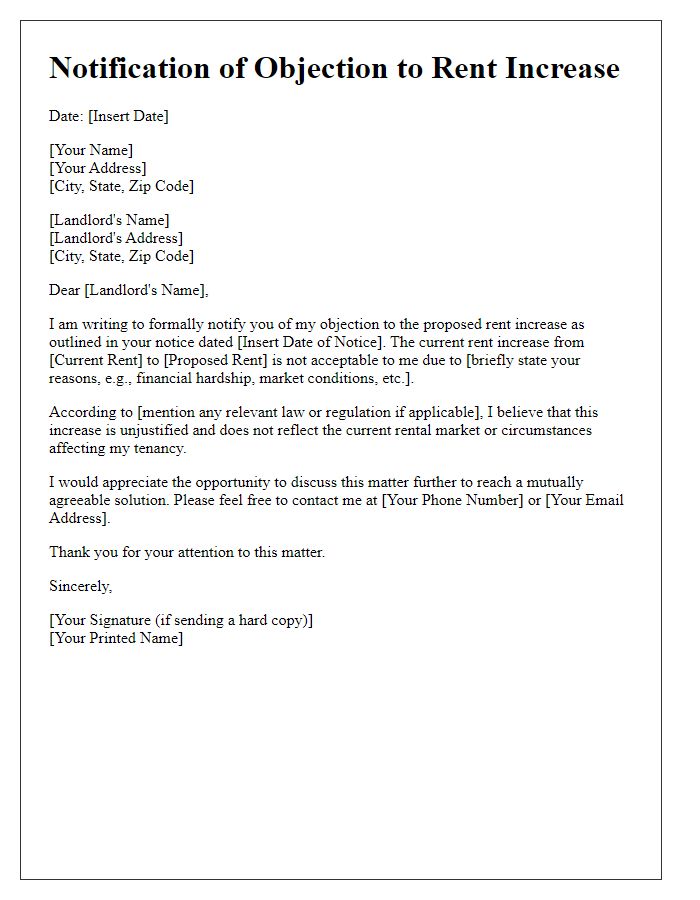
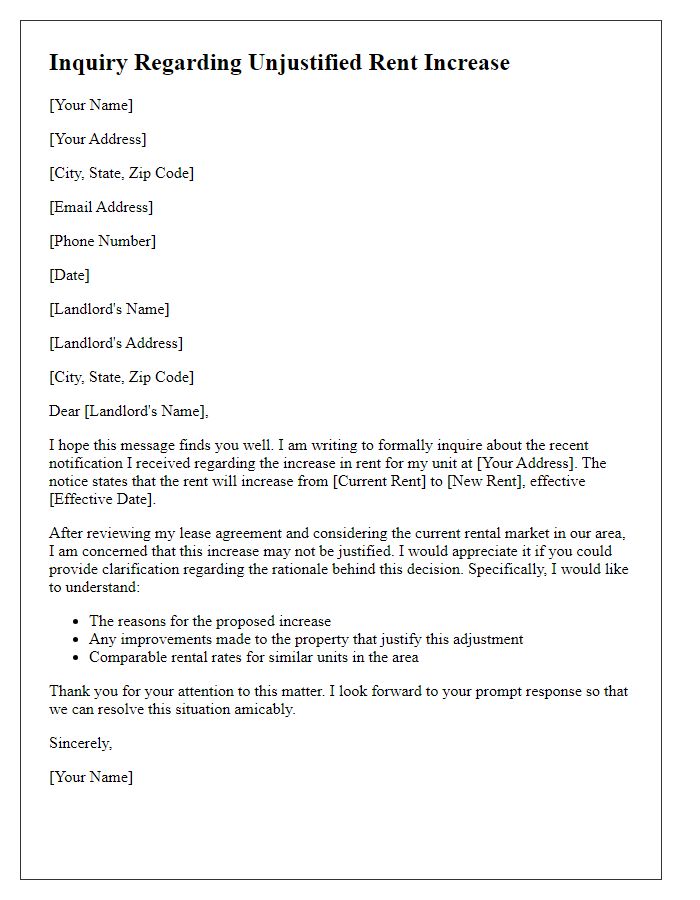
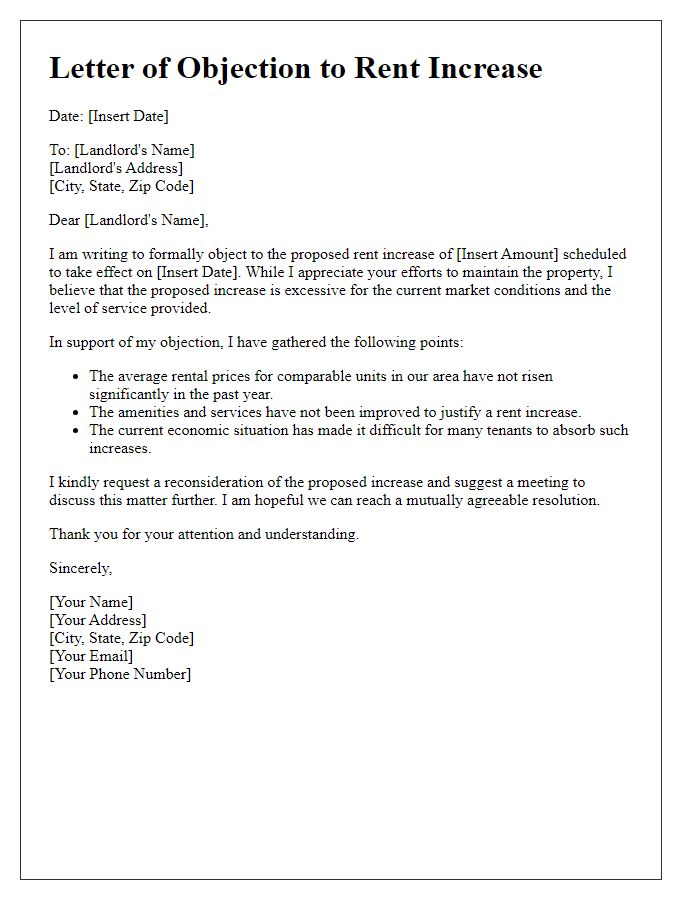
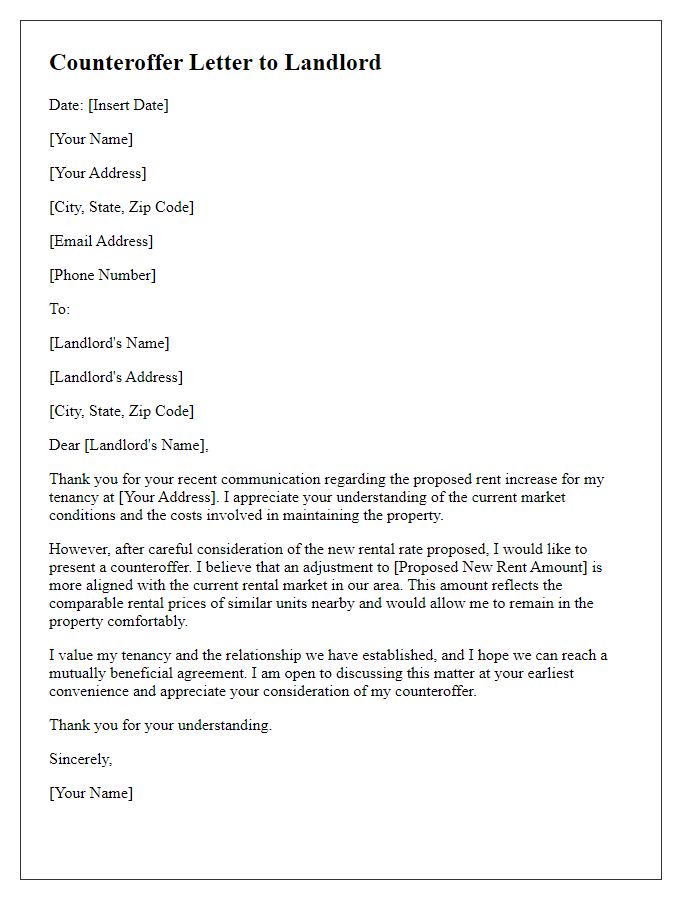


Comments